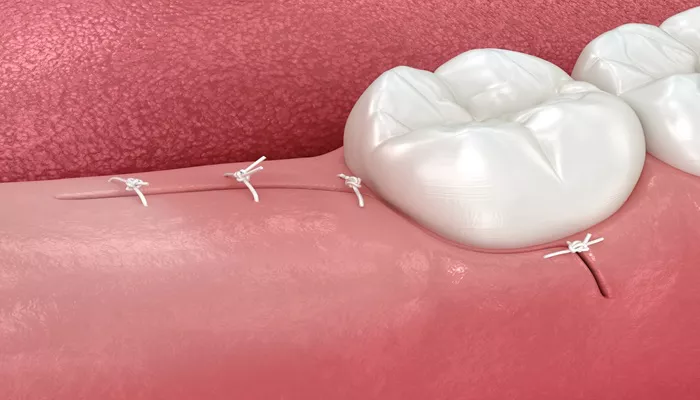Dental implants have become a popular solution for replacing missing teeth, offering durability and functionality comparable to natural teeth. However, with any medical procedure, questions about safety and potential health impacts are crucial. This article explores the safety of dental implants, considering both their benefits and potential risks.
Understanding Dental Implants
Dental implants are artificial tooth roots placed into the jawbone to support replacement teeth or bridges. They consist of three main components:
Implant Fixture: A titanium post that is surgically inserted into the jawbone.
Abutment: A connector placed on top of the implant fixture.
Crown: The visible part of the tooth that is placed over the abutment.
The procedure involves several stages, including implant placement, healing, and fitting the final restoration. The success of dental implants depends on various factors, including the quality of the implant, the skill of the dental professional, and the patient’s overall health.
SEE ALSO: How Long Does Dental Implant Swelling Last?
Benefits of Dental Implants
Dental implants offer numerous advantages over other tooth replacement options such as dentures or bridges:
Durability: Implants are designed to last for many years, often for a lifetime, with proper care.
Functionality: They provide a stable base for replacement teeth, allowing for normal chewing and speaking.
Aesthetic Appeal: Implants look and feel like natural teeth, improving the smile’s appearance.
Bone Preservation: Implants help preserve the jawbone by stimulating bone growth and preventing bone loss.
Safety Considerations for Dental Implants
While dental implants are generally considered safe, several factors influence their overall safety and effectiveness:
1. Material Safety
The primary material used in dental implants is titanium, which is well-tolerated by the human body. Titanium is biocompatible, meaning it integrates well with bone tissue without causing adverse reactions.
However, some individuals may have allergies or sensitivities to metals, which could pose risks.
2. Surgical Risks
As with any surgical procedure, dental implant surgery carries some risks. These include:
Infection: Post-surgical infections can occur, though they are relatively rare. Proper oral hygiene and following the dentist’s instructions can minimize this risk.
Nerve Damage: If the implant is placed too close to the nerves, it can cause numbness or tingling in the lips, gums, or tongue. Careful planning and imaging can prevent this issue.
Implant Failure: In some cases, implants may fail to integrate with the bone or become loose. Factors contributing to implant failure include poor bone quality, inadequate oral hygiene, and smoking.
3. Bone Health and Implant Integration
Successful implant integration requires sufficient bone density and volume. In cases where bone loss has occurred, bone grafting may be necessary. Patients with osteoporosis or other bone-related conditions should discuss their bone health with their dentist to determine the best course of action.
4. Long-Term Health Effects
Dental implants are designed to last for many years, but regular maintenance is essential to ensure their longevity. Poor oral hygiene can lead to peri-implantitis, an inflammatory condition affecting the tissues around the implant. Regular dental check-ups and cleanings are crucial for monitoring implant health and preventing complications.
Pre-Implant Assessment
A comprehensive pre-implant assessment is critical for ensuring the safety and success of dental implants. This assessment typically includes:
Medical History Review: The dentist will review the patient’s medical history, including any existing health conditions and medications, to assess their suitability for implant surgery.
Imaging Studies: X-rays and 3D scans are used to evaluate bone structure and determine the optimal placement of the implants.
Treatment Planning: A detailed treatment plan is developed based on the assessment, including the number of implants needed and the type of restoration required.
Post-Surgical Care
Following the implant procedure, patients should adhere to the following guidelines to promote healing and ensure the safety of the implants:
Follow Oral Hygiene Practices: Brushing and flossing regularly helps prevent infection and maintain oral health.
Avoid Hard Foods: In the initial healing phase, it is advisable to avoid hard or sticky foods that may affect the implants.
Attend Follow-Up Appointments: Regular check-ups with the dentist are essential for monitoring the implants and ensuring they are integrating properly with the bone.
Potential Risks And How to Mitigate Them
While the risks associated with dental implants are generally low, it is essential to be aware of potential issues and take steps to mitigate them:
Smokers: Smoking can impair healing and increase the risk of implant failure. Quitting smoking before the procedure and during the healing process can improve outcomes.
Diabetics: Patients with uncontrolled diabetes may face a higher risk of complications. Managing blood sugar levels and working closely with the healthcare team can help mitigate risks.
Pregnant Women: It is advisable to postpone non-essential dental procedures, including implants, until after pregnancy due to hormonal changes and the increased risk of infection.
Conclusion
Dental implants are a safe and effective solution for replacing missing teeth, offering significant benefits in terms of durability, functionality, and aesthetics. While there are risks associated with the procedure, these can be minimized through careful planning, proper surgical techniques, and diligent post-surgical care. Patients considering dental implants should consult with their dentist to discuss their individual needs and ensure that they are well-informed about the procedure and its potential risks.
In summary, dental implants are a viable option for many individuals, provided that they are evaluated thoroughly and cared for properly. With advancements in dental technology and techniques, the safety and success rates of dental implants continue to improve, making them a reliable choice for those seeking to restore their smiles and oral health.

